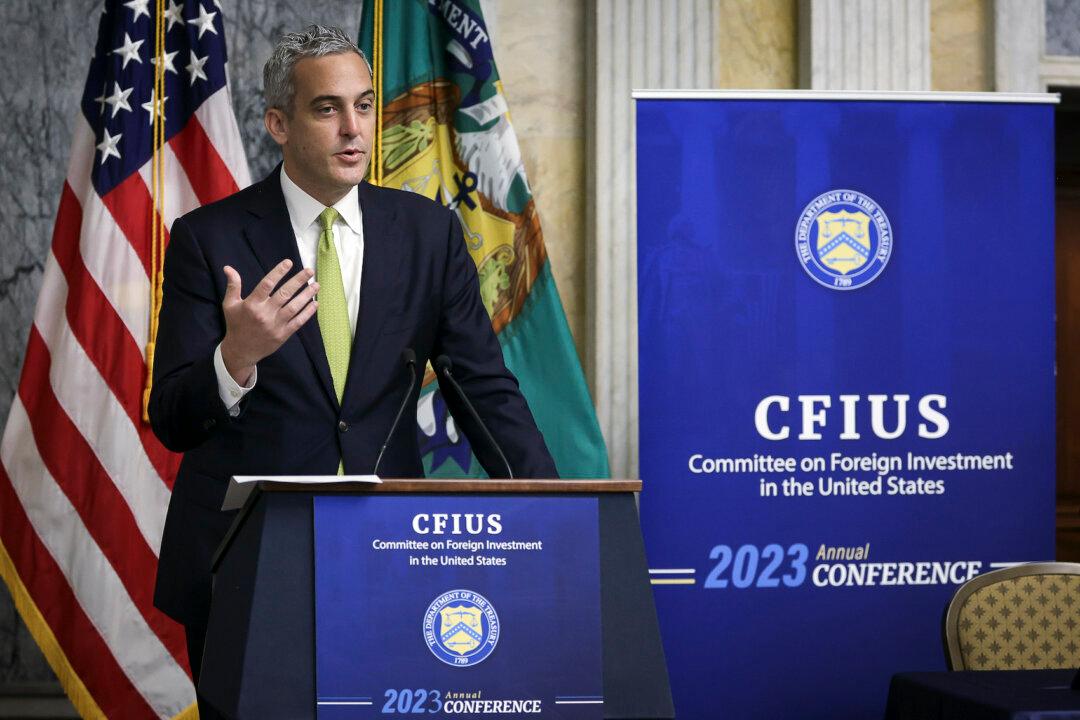The Biden administration has proposed new requirements that would constrain U.S. investments in artificial intelligence and other critical technology sectors in China due to national security concerns.
“This proposed rule advances our national security by preventing the many benefits certain U.S. investments provide—beyond just capital—from supporting the development of sensitive technologies in countries that may use them to threaten our national security,” Assistant Treasury Secretary for Investment Security Paul Rosen said.
The proposal specifically lists the People’s Republic of China—including the territories of Hong Kong and Macau—as a country of concern for which new U.S. investments may be restricted or prohibited.
Fully prohibited transactions include supercomputers or quantum computers and computing components for military purposes such as targeting, target identification, combat system logistics and maintenance; computing tools for intelligence or mass surveillance applications; and AI tools for sequencing biological data.
Notifiable transactions include designing and producing integrated circuits, as well as AI systems for certain surveillance and cybersecurity purposes.
“President Biden is committed to keeping Americans safe and is taking action to prevent the exploitation of U.S. outbound investments by countries of concern seeking to develop sensitive technologies or products that are critical to the next generation of military, intelligence, surveillance, or cyber-enabled capabilities that pose national security risks to the United States,” the Treasury Department said.
Those who fail to disclose notifiable transactions or proceed with prohibited transactions under the new proposed rules could face punishment under the International Emergency Economic Powers Act. Punishments range from civil penalties to criminal charges carrying a fine of up to $1 million and a potential prison sentence of up to 20 years.







